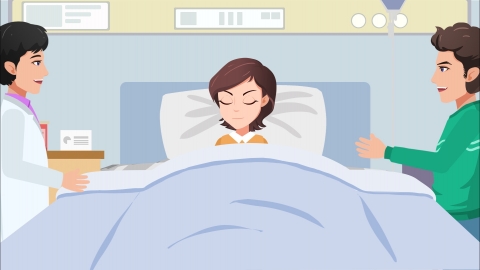Can sweating cure postpartum illness?
Generally speaking, sweating cannot cure postpartum illnesses and may instead push the mother into a more weakened state. The detailed analysis is as follows:

In folk tradition, discomforts during the puerperium such as joint pain, sensitivity to wind, and headaches are collectively referred to as "postpartum illness." The root cause lies in deficiency of both qi and blood, along with loose body pores after childbirth, making it easier for external pathogens like wind, cold, and dampness to invade. Artificially inducing sweat at this stage leads to further loss of body fluids through perspiration, aggravating the depletion of qi and blood. This may result in mild symptoms such as thirst and dizziness, or more severe consequences including electrolyte imbalance, sudden drop in milk supply, and even fainting.
From the perspective of modern medicine, sweating neither removes inflammatory mediators from joint cavities nor reverses soft tissue damage. High-temperature steam may easily cause skin burns and increase the risk of infection. If there is joint redness, swelling, or persistent fever, blind sweating may mask the condition and delay proper treatment.
During the postpartum confinement period, it's important to ensure adequate intake of high-quality protein and iron-rich foods—such as lean meat, animal liver, and black sesame seeds—to support the recovery of qi and blood. Under medical guidance, traditional Chinese patent medicines such as Shenghua Tang Granules or Bazhen Yimu Pills can also be used for gentle tonification. Additionally, moxibustion at the Guanyuan point, local joint washes with herbal decoctions, and consistent Kegel exercises can help gradually restore pelvic floor and core muscle strength. If symptoms do not improve within two weeks, or if high fever or wound discharge occurs, prompt medical attention is necessary to rule out organic diseases such as pelvic infection or breast abscess.






